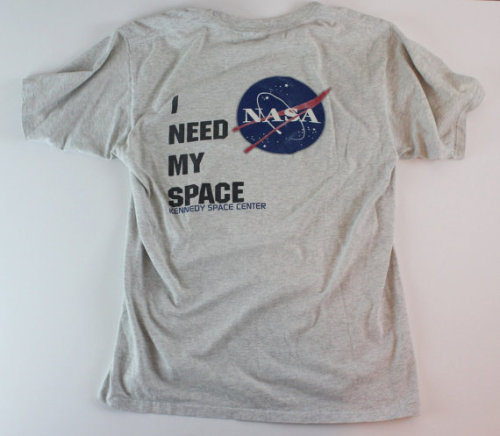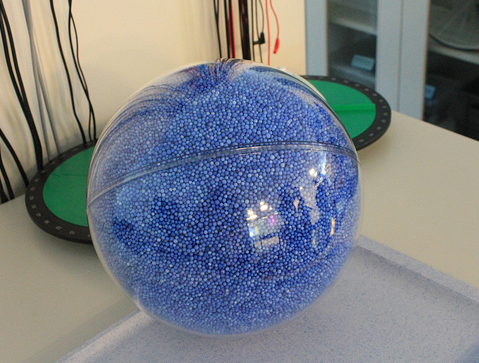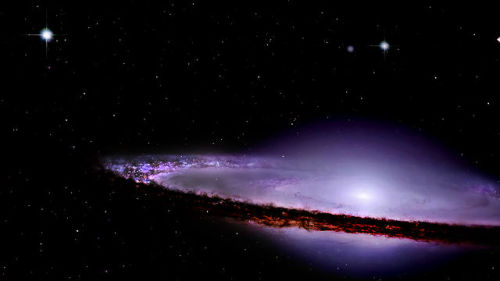Alitheastronomer - Science Rules

More Posts from Alitheastronomer and Others


Jupiters Great Red Spot is likely a sunburn, not a blush. New science from NASAs Cassini Mission to Saturn based on lab and flyby data.
js
Here is a time lapse of the International Space Station flying over the earth.










Striking views of our Solar System
Otherworlds: Visions of our Solar System can be seen at the Natural History Museum, London, from 22 January - 15 May 2016.
All credits on the link above

needed some stargazing and falling stars.
make a wish.

How curiosity changes the brain to enhance learning
The more curious we are about a topic, the easier it is to learn information about that topic. New research publishing online October 2 in the Cell Press journal Neuron provides insights into what happens in our brains when curiosity is piqued. The findings could help scientists find ways to enhance overall learning and memory in both healthy individuals and those with neurological conditions.
"Our findings potentially have far-reaching implications for the public because they reveal insights into how a form of intrinsic motivation—curiosity—affects memory. These findings suggest ways to enhance learning in the classroom and other settings," says lead author Dr. Matthias Gruber, of University of California at Davis.
For the study, participants rated their curiosity to learn the answers to a series of trivia questions. When they were later presented with a selected trivia question, there was a 14 second delay before the answer was provided, during which time the participants were shown a picture of a neutral, unrelated face. Afterwards, participants performed a surprise recognition memory test for the faces that were presented, followed by a memory test for the answers to the trivia questions. During certain parts of the study, participants had their brains scanned via functional magnetic resonance imaging.
The study revealed three major findings. First, as expected, when people were highly curious to find out the answer to a question, they were better at learning that information. More surprising, however, was that once their curiosity was aroused, they showed better learning of entirely unrelated information (face recognition) that they encountered but were not necessarily curious about. People were also better able to retain the information learned during a curious state across a 24-hour delay. “Curiosity may put the brain in a state that allows it to learn and retain any kind of information, like a vortex that sucks in what you are motivated to learn, and also everything around it,” explains Dr. Gruber.
Second, the investigators found that when curiosity is stimulated, there is increased activity in the brain circuit related to reward. “We showed that intrinsic motivation actually recruits the very same brain areas that are heavily involved in tangible, extrinsic motivation,” says Dr. Gruber. This reward circuit relies on dopamine, a chemical messenger that relays messages between neurons.
Third, the team discovered that when curiosity motivated learning, there was increased activity in the hippocampus, a brain region that is important for forming new memories, as well as increased interactions between the hippocampus and the reward circuit. “So curiosity recruits the reward system, and interactions between the reward system and the hippocampus seem to put the brain in a state in which you are more likely to learn and retain information, even if that information is not of particular interest or importance,” explains principal investigator Dr. Charan Ranganath, also of UC Davis.
The findings could have implications for medicine and beyond. For example, the brain circuits that rely on dopamine tend to decline in function as people get older, or sooner in people with neurological conditions. Understanding the relationship between motivation and memory could therefore stimulate new efforts to improve memory in the healthy elderly and to develop new approaches for treating patients with disorders that affect memory. And in the classroom or workplace, learning what might be considered boring material could be enhanced if teachers or managers are able to harness the power of students’ and workers’ curiosity about something they are naturally motivated to learn.

Whirlpool Galaxy by Alessandro Falesiedi
js

This is a model of how many Earth’s can fit inside the sun.

The stunning Sombrero galaxy (seriously, there should be a blog that’s just photos of the Sombrero galaxy)

#Space: Arp 256, a stunning system of 2 #spiral #galaxies in early stage of #merging http://ift.tt/1CMu20M via @esa
-
 11072375 liked this · 4 years ago
11072375 liked this · 4 years ago -
 see-with-space-eyes reblogged this · 6 years ago
see-with-space-eyes reblogged this · 6 years ago -
 azamiranyan liked this · 6 years ago
azamiranyan liked this · 6 years ago -
 niavirrivain liked this · 6 years ago
niavirrivain liked this · 6 years ago -
 booperblooper liked this · 6 years ago
booperblooper liked this · 6 years ago -
 wallymcflubberfins liked this · 6 years ago
wallymcflubberfins liked this · 6 years ago -
 sharkspaceengine liked this · 6 years ago
sharkspaceengine liked this · 6 years ago -
 panda0o0r-blog liked this · 7 years ago
panda0o0r-blog liked this · 7 years ago -
 kingchicken2228 liked this · 8 years ago
kingchicken2228 liked this · 8 years ago -
 happyunicorn200412-blog liked this · 8 years ago
happyunicorn200412-blog liked this · 8 years ago -
 antchi88 liked this · 8 years ago
antchi88 liked this · 8 years ago -
 enderpl liked this · 8 years ago
enderpl liked this · 8 years ago -
 ivangosk8 reblogged this · 9 years ago
ivangosk8 reblogged this · 9 years ago -
 infernodss liked this · 9 years ago
infernodss liked this · 9 years ago -
 alitheastronomer reblogged this · 9 years ago
alitheastronomer reblogged this · 9 years ago -
 hiscosmicperspective-blog reblogged this · 9 years ago
hiscosmicperspective-blog reblogged this · 9 years ago -
 reallybadspaghetti reblogged this · 9 years ago
reallybadspaghetti reblogged this · 9 years ago -
 hiscosmicperspective-blog reblogged this · 9 years ago
hiscosmicperspective-blog reblogged this · 9 years ago -
 urn-of-sacred-asses liked this · 9 years ago
urn-of-sacred-asses liked this · 9 years ago -
 loveandconsumption reblogged this · 9 years ago
loveandconsumption reblogged this · 9 years ago -
 plightofthecentipede liked this · 9 years ago
plightofthecentipede liked this · 9 years ago -
 snowdens reblogged this · 9 years ago
snowdens reblogged this · 9 years ago -
 snowdens liked this · 9 years ago
snowdens liked this · 9 years ago -
 vinnysgtg liked this · 9 years ago
vinnysgtg liked this · 9 years ago -
 dumbitch89 liked this · 9 years ago
dumbitch89 liked this · 9 years ago -
 alycat963xoxo liked this · 9 years ago
alycat963xoxo liked this · 9 years ago -
 andromedafalls liked this · 9 years ago
andromedafalls liked this · 9 years ago -
 shastabwh liked this · 9 years ago
shastabwh liked this · 9 years ago -
 dogpower77 reblogged this · 9 years ago
dogpower77 reblogged this · 9 years ago -
 dogpower77 liked this · 9 years ago
dogpower77 liked this · 9 years ago -
 spacehideaway-blog reblogged this · 9 years ago
spacehideaway-blog reblogged this · 9 years ago